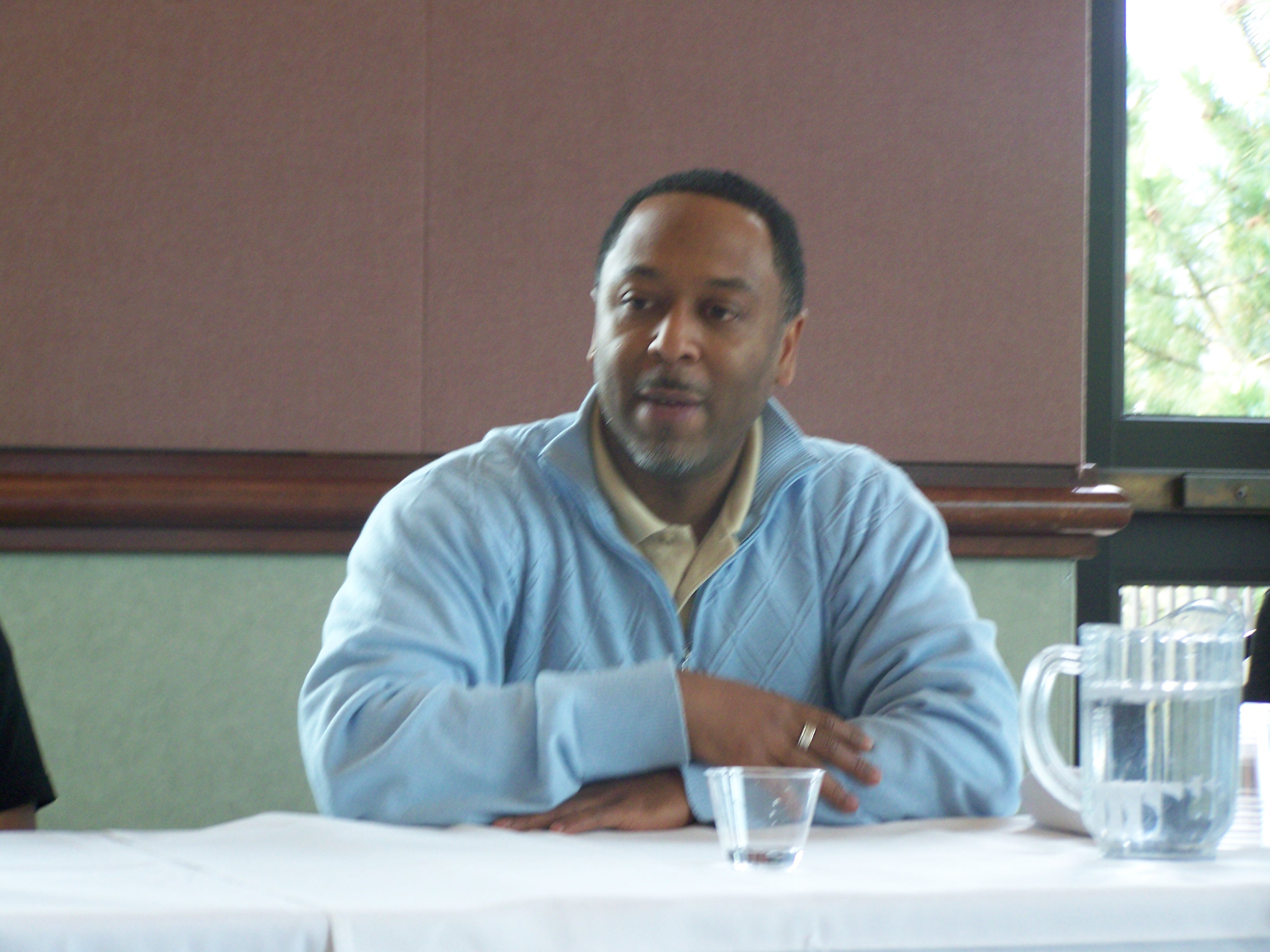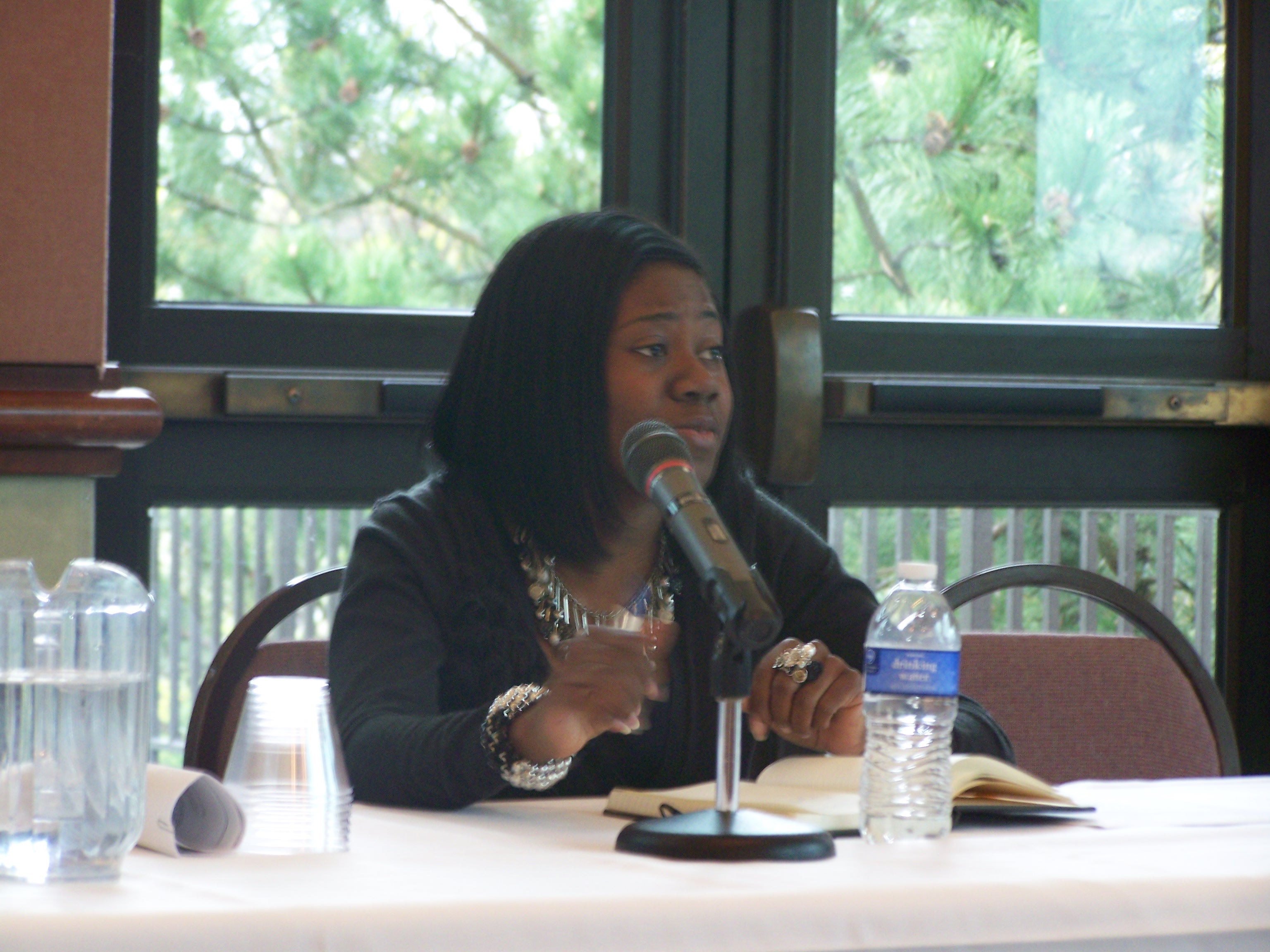
On April 3, S.T.R.I.D.E. held its final panel discussion of the year, entitled “Reflections: Hip-Hop’s Evolution and Influence on Society’s Content.” The panelists described what hip-hop means to our society.
The panelists included Sierra Austin, graduate teaching associate at OSU; junior Andrew Wilson, slam poet and SUBA treasurer; Adero Robinson, director of education Services at Columbus Urban League; Speak Williams, Columbus artist, writer and musician; and junior James Huddleston, member of Black Men of the Future.
They quickly jumped into discussion about the hip-hop of today.
“At this point, hip-hop touches every fabric because it can generate so much money,” Williams said. “At this point, hip-hop and pop culture are synonymous.”
Robinson said it is in many parts of society, including sports, classrooms and businesses.
“It has such an appeal because it catches the spirit,” Robinson said.
Wilson emphasized the influence of hip-hop on the fine arts.
“(Hip-hop has) had a huge impact in the realm of fine art,” he said. “Artists today work worldwide though their art.”
The panelists also discussed the common question of what the main differences are between rap and hip-hop.
“Hip-hop is so evolutionary,” Williams said. “Hip-hop is always being used historically as a cultural expression. Rap is more of an element to hip-hop, just like dance and graffiti are elements. Hip-hop is how you do it.”
“Hip-hop focuses more on the rhythm while rap is more of a lyrical expression from the artist,” Huddleston said.
As important as hip-hop has been to our society, the panelists said hip-hop has changed in the past 10 years.

Williams said hip-hop has evolved from something that was considered “rebel music” and something you did not want to get caught listening to.
He said since the early 2000s, hip-hop has become a lifestyle and a “total buy-in.”
“Artists might as well be like a political leader,” Williams said. “If Wiz (Khalifa) says ‘roll a doobie up,’ people roll a doobie up.”
He said that artists now do not live what they are rapping about and that he tells teenagers they cannot live their lives based on lyrics of artists who did not live on the streets.
“I tell kids that if you want to be a musician, don’t go into the music business,” Williams said. “If you want to be an actor, go into the music business.”
“It’s all about a false person and ego now,” Wilson said. “It’s not real.”
Williams also commented on the effects the industry has had on the success of hip-hop.
“Once the objective becomes selling records, everything goes out the window,” Williams said. “People don’t determine who is on the radio, the industry does.”
He said hip-hop will never be what it was, because in the future, it will be a different form of expression.
“Hip-hop has now married themselves to popular music,” Williams said.
“The music industry is here to stay as long as people are buying it. I think hip-hop will dismantle and become ‘electronic-rap-pop.’ At some time in the future, some people will get frustrated and form a new form of expression.”
Junior Sam Irvine, Student Assistantship Program (StAP) intern for the Office of Multicultural Student Affairs, said S.T.R.I.D.E. is a dialogue series which has taken place on the first Tuesday of every month.
“Panelists are pulled from the Delaware and Franklin County area and also include members of our OWU community,” Irvine said.
“Not only does it allow our community to engage in open and honest dialogue, but it also connects students with members of the Delaware and Columbus community.”